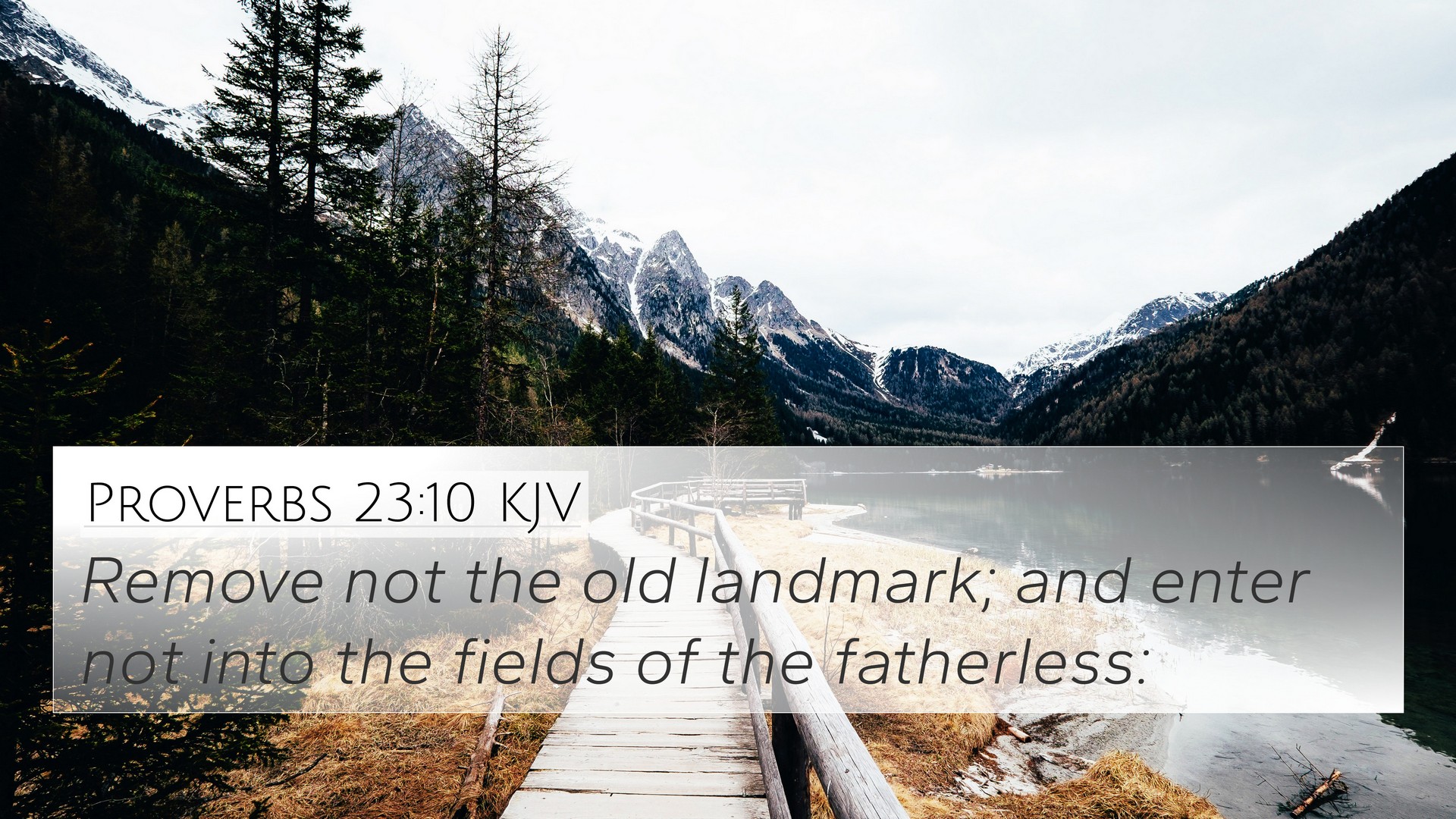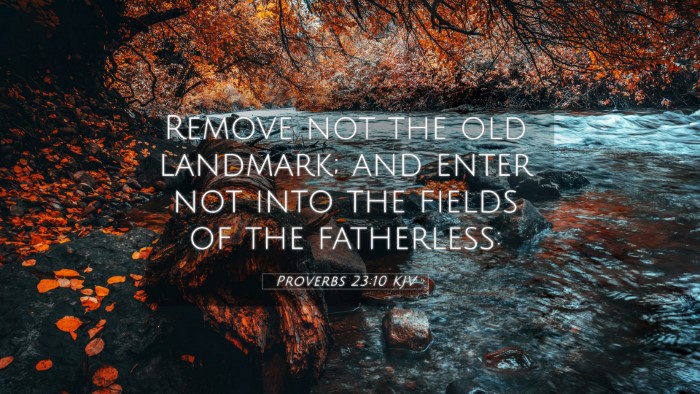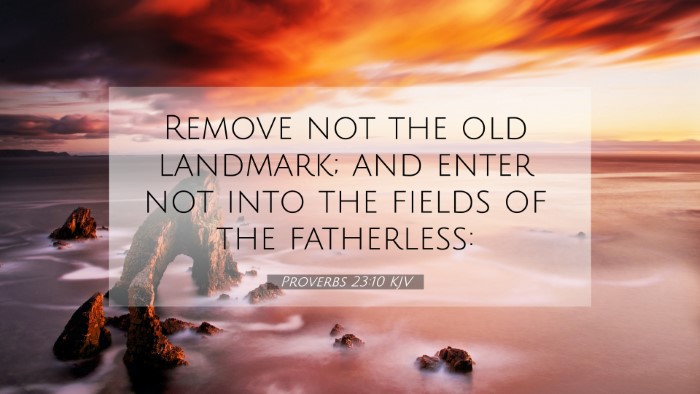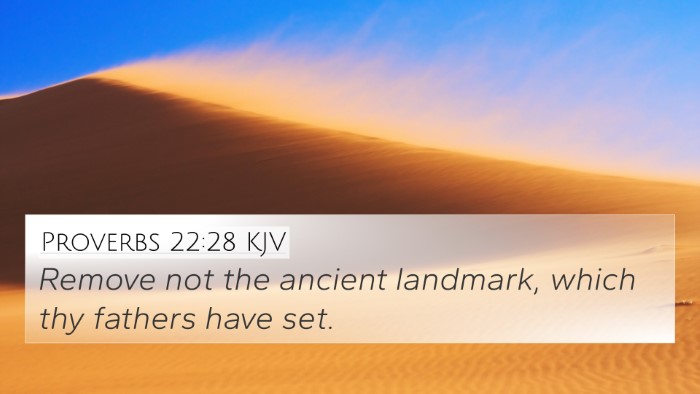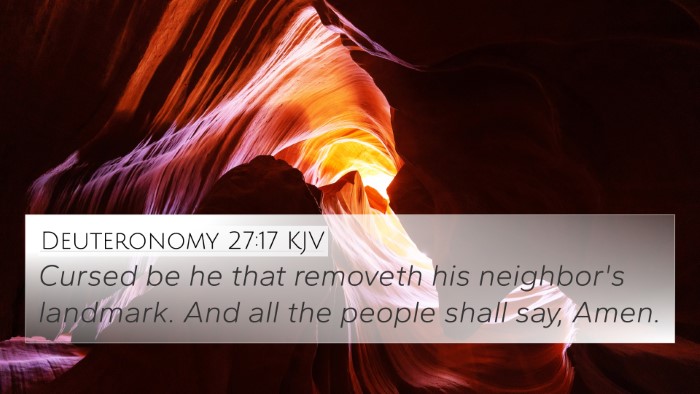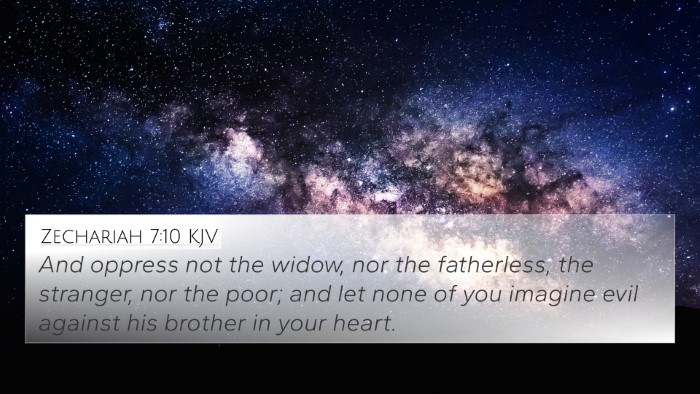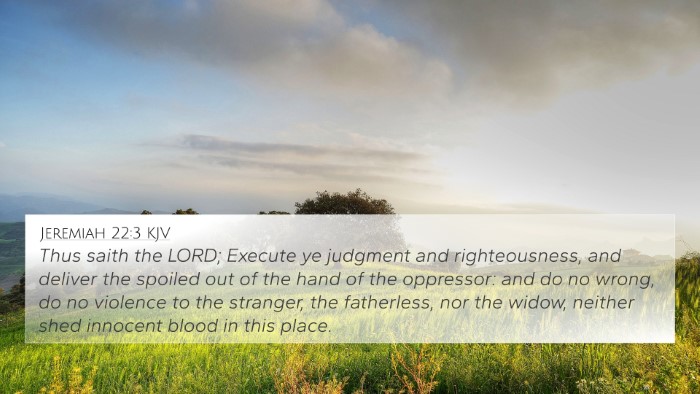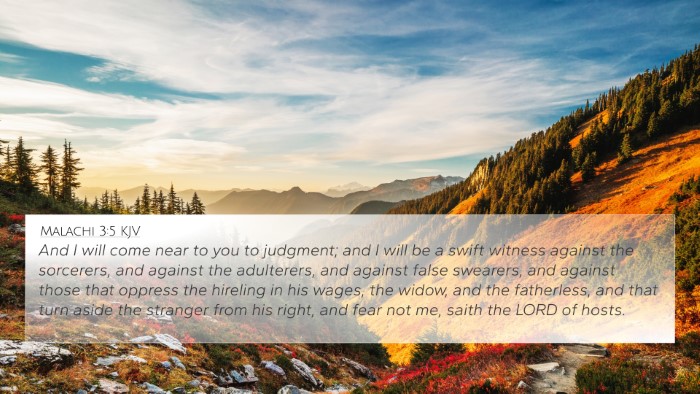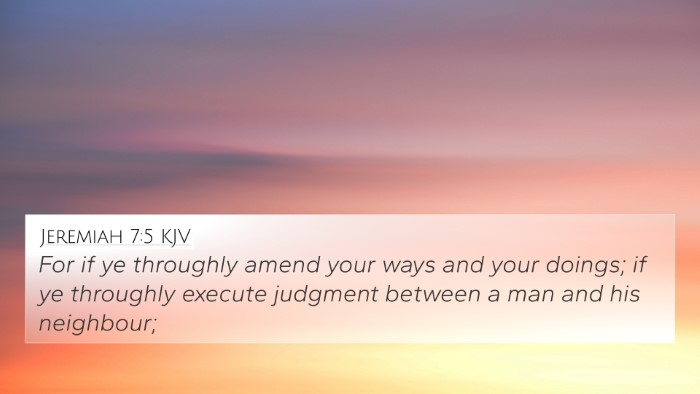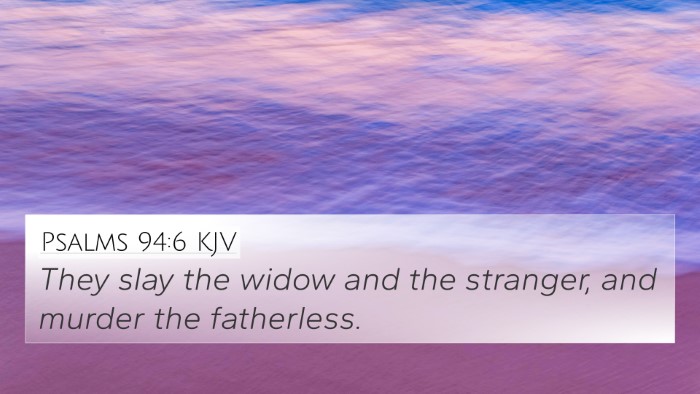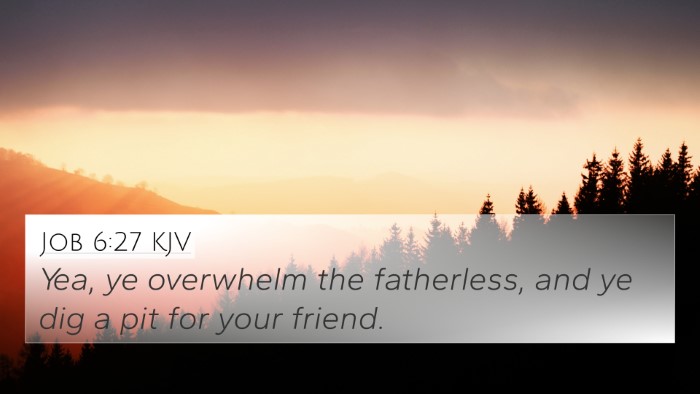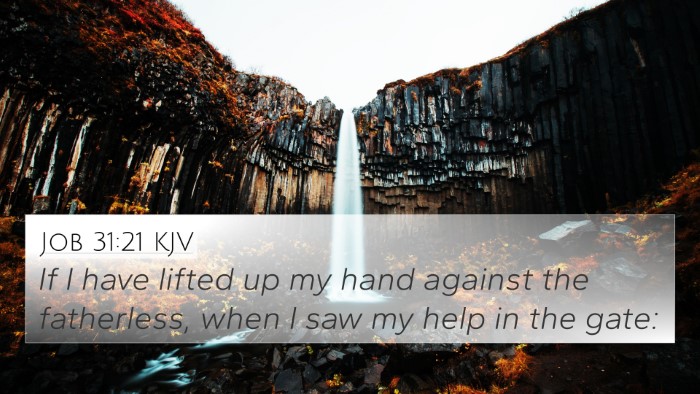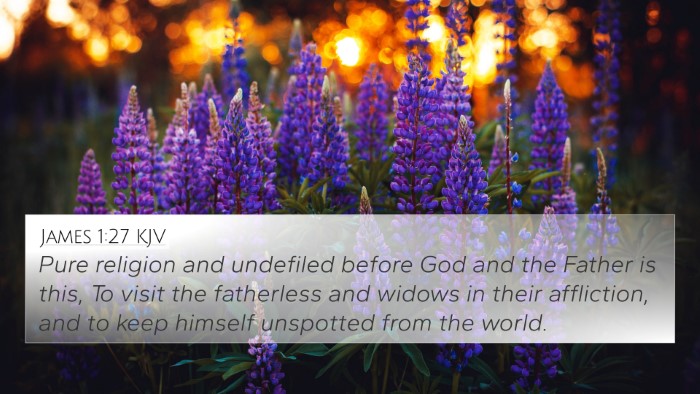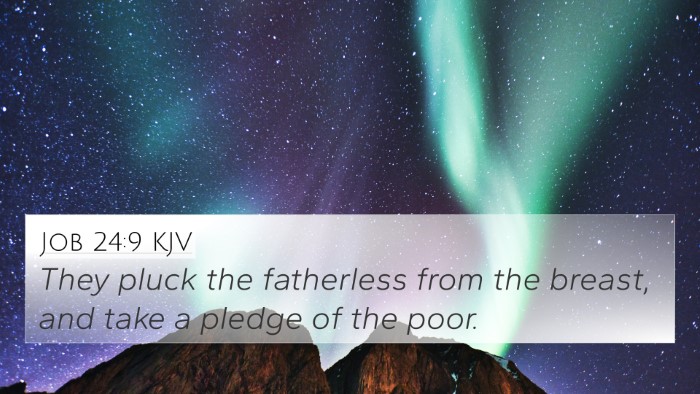Understanding Proverbs 23:10
Proverbs 23:10 states: "Do not remove the ancient landmark, nor enter the fields of the fatherless." This verse carries profound implications about justice, property rights, and moral integrity.
Summary of Insights
Throughout the ages, biblical commentators such as Matthew Henry, Albert Barnes, and Adam Clarke have delved into the meaning of this verse, emphasizing the importance of respecting boundaries, both physical and moral. Each commentary brings out various dimensions of the scripture that underline its relevance in our lives today.
Key Themes and Ethical Principles
-
Respect for Property:
The phrase "ancient landmark" represents the boundaries set for property ownership. Removing these markers symbolizes a disregard for others' rights and a temptation to unjustly acquire what does not belong to oneself. This idea resonates throughout the Bible, reminding us of the sanctity of personal property (Job 31:38-40).
-
Protection of the Vulnerable:
The "fields of the fatherless" refer to the vulnerable members of society. The biblical exhortation to avoid exploiting those in precarious situations highlights a recurring scriptural theme of justice and compassion towards the weak (Deuteronomy 10:18).
-
Upholding Justice:
By admonishing against the infringement on boundaries and the exploitation of the vulnerable, the verse serves as a call to uphold justice and righteousness, core principles that pervade both the Old and New Testament teachings (Micah 6:8).
Bible Cross-References
The verse can be connected to several other scripture passages:
- Deuteronomy 19:14: "You shall not move your neighbor's landmark, which the men of old have set."
- Proverbs 22:28: "Do not remove the ancient landmark which your fathers have set."
- Job 31:1-4: Job speaks about his integrity and his regard for the rights of others.
- Isaiah 1:17: "Learn to do good; Seek justice, Rebuke the oppressor."
- James 1:27: "Pure and undefiled religion before God is this: to visit orphans and widows in their trouble."
- Psalms 82:3: "Defend the poor and fatherless; Do justice to the afflicted and needy."
- Lamentations 3:34-36: "To crush under one’s feet all the prisoners of the earth, to turn aside the right of a man before the face of the Most High."
Comparative Bible Verse Analysis
The ethical dimensions of Proverbs 23:10 can be analyzed through a comparative study of parallel scriptures across the Bible. The importance of maintaining justice is seen in how these verses harmonize around the themes of property rights and care for the vulnerable.
Practical Applications in Today’s Context
-
Modern Ethics:
The respect for boundaries can be applied in various aspects of life, including business practices, personal relations, and community involvement. Ensuring fairness in our dealings reflects the biblical principle of justice.
-
Social Justice Movements:
The call to protect the vulnerable is highly relevant in today's societal context, where issues of poverty and injustice prevail. Engaging with and advocating for those marginalized aligns with the heart of biblical teachings on social justice.
Conclusion
Proverbs 23:10 serves as a poignant reminder of our responsibilities towards others in society, particularly the vulnerable. By understanding its contextual and ethical significance, as illuminated by historical commentaries, we can better navigate our role in promoting justice and righteousness within our communities. This scripture is a call to uphold moral integrity, protect the rights of others, and act justly—an eternal truth that transcends time.
Further Research Tools
To further delve into the implications of Proverbs 23:10, consider using various tools for Bible cross-referencing, such as concordances, Bible cross-reference guides, and chain reference materials. Here are some methods:
- Utilize a Bible concordance to find similar themes;
- Employ a cross-reference Bible study method to explore interrelations;
- Look for a comprehensive Bible cross-reference system to streamline your study.
